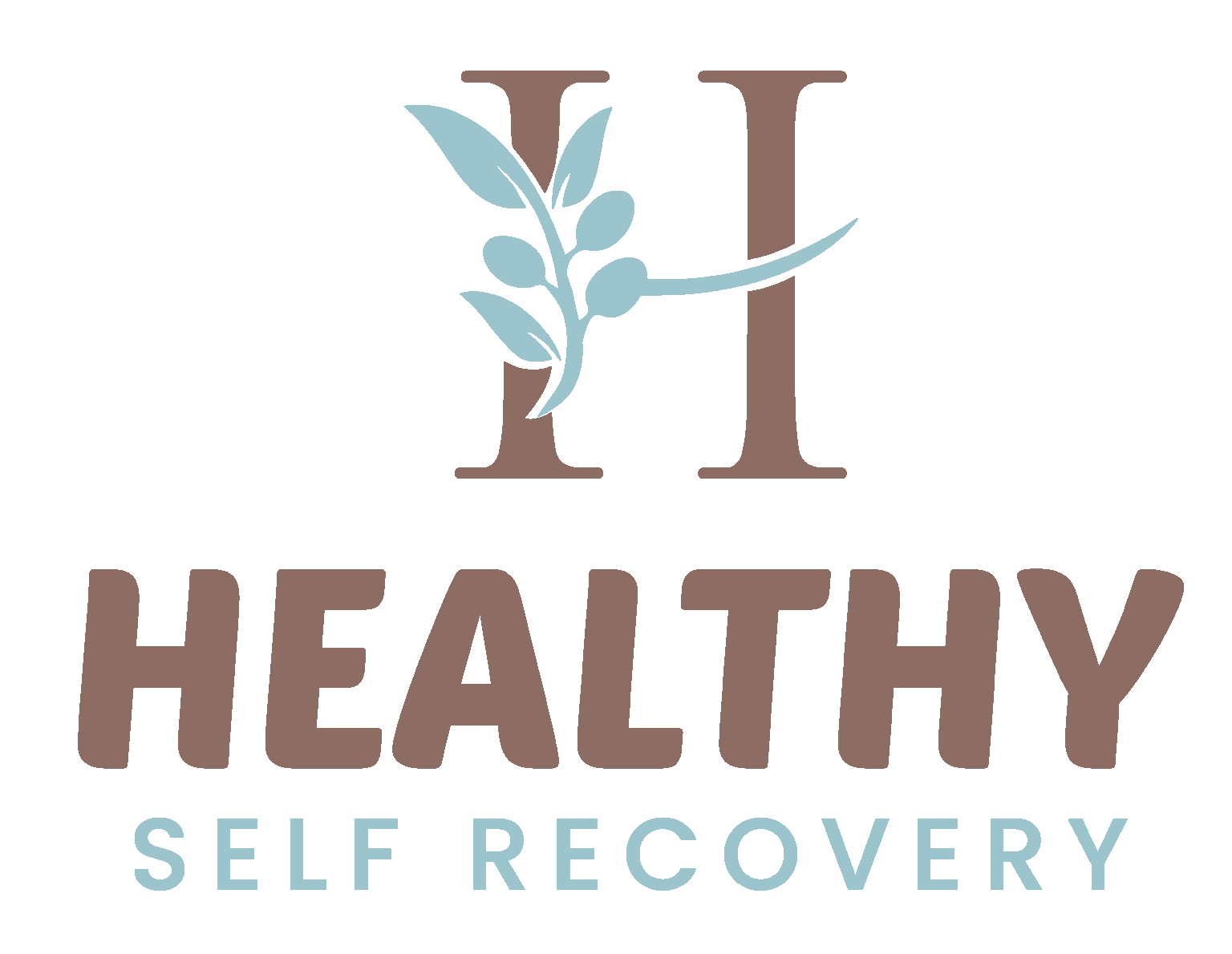Far from a simple matter of diet or willpower, eating disorders are serious, complex mental illnesses that affect people from all walks of life. There is no single cause of an eating disorder, but instead, they stem from a mix of genetic, psychological, and sociocultural factors that come together in a perfect storm to have profound consequences on a person’s physical and emotional well-being.
Sadly, some people are still under the misconception that eating disorders are a choice, rooted in vanity or a need for attention; however, this could not be further from the truth and unfortunately prevents many from seeking and receiving the compassionate support they urgently need with eating disorder recovery coaching. Through this blog, I hope to give a more accurate understanding of the true complexities of eating disorders.

Understanding Eating Disorders
Eating disorders are never a matter of willpower or something someone can simply “snap out of”. Instead, research points to certain individuals having a genetic predisposition which, when combined with societal pressures around body image, environmental stressors, and individual vulnerabilities, creates a perfect storm where disordered behaviours around food and exercise are used in a misguided attempt to cope with difficult, painful emotions and situations.
The Biology of Eating Disorders
Genetic predisposition and being malnourished
More and more research shows that eating disorders have a genetic component and are highly heritable. This means that while most people who go on a diet do not develop an eating disorder, those with a genetic predisposition are likely to be at risk. What starts as a seemingly innocuous diet can quickly spiral downwards. For these people, not giving their bodies sufficient energy can actually trigger the onset of an eating disorder.
Generally, if someone feels exhausted, depressed, and hungry, they seek food in order to alleviate this; however, for people with a genetic susceptibility to an eating disorder, the opposite occurs. They may get a sense of reward and accomplishment when they restrict their food, even when their body is malnourished and lacking in energy. Each person’s experience is unique, but it is common for people to say that the act of restricting makes them feel strong, safe, powerful, calm, or superior.
Eating disorders have a significant impact on the brain
Consistently restricting and eating less than what your body needs affects all organs of the body, including the brain. In fact, even modest dieting can affect our brain’s activity. Particularly during critical growth periods in children and adolescents, depriving the brain of glucose, its preferred energy source, alters its size and function.
Eating disorders alter the brain’s reward pathways, reinforcing disordered patterns. Common eating disorder behaviours such as restriction, bingeing, purging, or excessive exercise trigger a release of dopamine, which creates a sense of satisfaction. With time, the brain starts to connect this feeling with safety and relief, and as these neural pathways strengthen, they become automatic and difficult to resist. Recovery from an eating disorder means retraining the brain and creating new neural pathways.
Restricted eating, over-exercise, and excessive weight loss imbalances our brain chemistry, resulting in increasing symptoms of depression and anxiety about one’s body shape, weight, eating, and food. One of the impacts of the changes to the brain is anosognosia. Anosognosia is when someone’s brain is unable to recognise or understand the extent and impact of their illness, in spite of it being very obvious to everyone else. This is very common with eating disorders, as most sufferers believe that they are not sick enough, no matter how advanced their eating disorder may be.
Many people who develop an eating disorder do so already with poor body image. As their eating disorder progresses, this distortion only gets more significant, with what is actually healthy or underweight being seen as overweight, which becomes a significant barrier to them wanting things to change.
Eating Disorders Serve a Purpose
Eating disorders serve a purpose, and understanding what needs the eating disorder fulfills is important in learning how to meet those needs in an alternative fashion.
Some of the purposes an eating disorder may serve are:
- Express emotion
- Are a way to suppress traumatic memories
- Help to cope with or numb painful emotions
- Help to cope with stress and a seeming lack of control over life events
- Provides a distraction from painful situations or situations that don’t seem to have a solution
- Provides a sense of comfort, safety, and familiarity
Often at the start focusing on food may have done a good job of serving that purpose and someone may even have been praised and applauded for their “discipline” or weight loss but as the eating disorder takes over behaviours become increasingly disordered and irrational the eating disorder behaviours become automatic and are used to cope with almost everything and so the idea of letting go of these behaviours seems terrifying.

Eating Disorder Myths
Eating Disorders Only Affect Certain Body Types
If I were to ask someone to picture someone with an eating disorder, they would almost always picture a young, affluent white woman who is extremely thin. This is the description that has typically always been; however, this is a dangerous misconception that has a profound impact on the vast majority of ED sufferers who are not classified as “underweight” and who consequently struggle to get help.
The reality is that you cannot tell if someone has an eating disorder simply by looking at them. Eating disorders affect all bodies, gender identities, ethnicities, ages, and socio-economic statuses indiscriminately, and people in larger bodies are just as likely to have an eating disorder as those in smaller bodies. It’s crucial to dispel this about eating disorders because someone who is not extremely thin may have their eating disorder overlooked or dismissed because they don’t look a certain way, or they may feel that they are “not sick enough” to get help.
Eating Disorder Recovery is Easy
Recovery feels counterintuitive. Contrary to the misconception that eating disorder recovery is easy, it is, in fact, an incredibly challenging and difficult journey. Eating disorders are egosyntonic. What that means is that to someone with an eating disorder, the eating disorder thoughts, beliefs, and behaviours feel like they are aligned with their own self-image, values, and beliefs. This means that even if the person knows they are unwell and need help, they may feel very ambivalent about wanting to let go of their eating disorder. This push-pull between the eating disorder and recovery is very common, but it also complicates the recovery process.
Recovery Feels Worse Before it Feels Better
Because the eating disorders’ rules, thoughts, and values are so ingrained when someone starts to do things that go against these, it feels petrifying, anxiety-provoking, and very, very wrong. To someone with an eating disorder, doing the healthy thing -eg, resting, eating more, not purging- is incredibly difficult to do because they feel so counterintuitive.
As I have mentioned before, eating disorders are often a way of coping with anxiety. Part of recovery is learning alternative coping mechanisms, but to begin with, this can be incredibly difficult when someone starts to try to get by without relying on eating disorder behaviours to self-soothe. It is not uncommon for anxiety to increase initially until alternative coping mechanisms become more ingrained and familiar.
Added to that, when someone starts to increase their food volume after a period of restriction, there is a lot of physical discomfort that can occur due to digestive issues, and fatigue can increase. Extreme hunger can occur, which can trigger a lot of anxiety and shame as well as temporary physical discomfort due to fullness and rapid weight gain.
Recovery is Exhausting
When people are in recovery from substance abuse, they do this by abstaining from the substance. However, with recovery from an eating disorder, food is the medicine, and exposure rather than avoidance is the cure. This means recovery is a constant process of facing one’s fears and anxieties multiple times. Often, this feels overwhelming and never-ending
Recovery is Not Simply About the Food
Recovery from an eating disorder is a complex process because eating disorders themselves are so multifaceted. This is why the gold standard for recovery is always to work with a multi-disciplinary team so that as many aspects of recovery as possible can be addressed.
While nutritional rehabilitation in order to restore body weight to an appropriate level and repair tissues, cells, and hormones is foundational to recovery, it is not the only part of recovery. There is also a behavioural part – where eating disorder behaviours such as calorie counting, bingeing, purging, weighing self or food, body checking, excessive exercise, laxative use, and many other behaviours need to be addressed. Although it is incredibly difficult, the brain responds to experience, and changing behaviours and reframing thoughts creates new neural pathways. With time and consistent effort, these healthier connections strengthen your recovery journey. Pro-recovery behaviours and thoughts overshadow the eating disorder voice.
Of equal importance to the latter two is the psychological part of recovery. This encompasses addressing a wide range of things such as the beliefs and thoughts around food, weight, body, body image, self-compassion, cognitive distortions, and perfectionism. Working with a trained therapist and eating disorder recovery coach to help work through the underlying issues that have contributed to the eating disorder.
Recovery is Never Linear
Recovery from an eating disorder is never a perfect linear journey, and relapse, although difficult, is a very common occurrence. Relapse happens for many reasons, including the ambivalence that everyone with an eating disorder feels about challenging ingrained behaviours, but it is never a sign of failure. Instead, relapse often brings the opportunity to pause,re-assess strategies, and re-engage with recovery from a position of awareness and knowledge. Recovery takes time, effort, and consistency, and in order for it to happen, we need to have a huge amount of patience with oneself, learn to have self-compassion, and it also demands a level of perseverance to keep moving forward.
Just because someone is eating and not engaging in behaviours, this does not mean they have fully recovered.
Full Recovery Goes Beyond Food and Behaviors
While positive changes in eating habits are fantastic progress, it’s crucial to understand that just because there are no overt eating disorder behaviours does not mean that someone has fully recovered. Eating disorders are complex mental, physical, and social illnesses, and someone may still be battling internally with their eating disorder thoughts and beliefs even if they appear to be consuming food “normally”. In fact, it is very common for factors such as constant thoughts about food, an intense fear of weight gain, anxiety around eating and meals, and body image distress to continue long after noticeable behaviours stop. Full recovery extends far beyond food and weight, encompassing a change in relationship not just to food but to oneself and life.
A better understanding of eating disorders is crucial for effective support and true recovery. We often hear the simplistic question, “Why don’t you just eat?” Yet the reality is that eating disorders are complex mental, social, and physical illnesses, and it is crucial to challenge these misconceptions and provide accurate information. By really understanding the profoundly difficult and painful struggle involved in recovery, we can offer empathy and compassionate support, which are essential for someone to feel safe enough to seek support and start their journey of recovery.
If you or someone you care about is suffering from an eating disorder, at Healthy Self Recovery, I am here to support you through all aspects of recovery.

Finding Hope and Healing Through Eating Disorder Recovery Coaching in England and Online Globally
If you’ve been struggling with the overwhelming challenges of an eating disorder, know that lasting recovery is possible. With eating disorder recovery coaching in England, you can begin to untangle harmful patterns and create a healthier relationship with yourself and food. At Healthy Self Recovery, we’re here to walk alongside you with compassionate support—follow these three simple steps:
- Reach out and book a confidential consultation
- Begin working with a supportive eating disorder recovery coach
- Start healing with ongoing support!
Additional Services Offered at Healthy Self Recovery
At Healthy Self Recovery, I offer personalized eating disorder recovery coaching designed to help you move past the “not sick enough” mindset and take meaningful steps toward lasting healing. I guide you in reconnecting with your body’s natural signals, rebuilding trust around food, and making changes that feel realistic, empowering, and sustainable. Whether you’re balancing a high-pressure career, navigating life after childbirth, or managing the demands of competitive sports, my approach combines compassion, practical strategies, and insight drawn from real-life experience.
In our sessions, we’ll look closely at the physical sensations, emotional triggers, and thought patterns that drive disordered eating, with a focus on managing intense hunger and urges. You’ll also receive text-based support between sessions for ongoing motivation and accountability. For those needing extra guidance during meals, I provide supportive eating sessions in a safe, nonjudgmental environment and coordinate with your care team to ensure consistent, holistic support.
I work with clients online across the UK—including England, Scotland, Wales, and Ireland—as well as internationally. Together, we’ll develop a recovery plan that honors your body, nurtures self-compassion, and helps you cultivate a calmer, more positive relationship with food.








